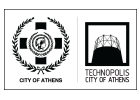
We use a plastic glass for a minute and it takes 200 years for it to melt. During its decomposition it releases methane, a gas that is responsible to a big extent for the greenhouse effect 25 times more than carbon dioxide. A ton of pure plastic needs 1400 euro to be produced while a ton of recycled plastic only 900 euro.
The numbers speak for themselves. Do we hear them? Or do we throw away, along with the plastics, all the valuable information that would convince us to do little moves in order to achieve big results? Watch here the journey of a plastic bag, its ending and its impact on the environment.
The more complicated our life becomes and thereafter the products we consume, the more complicated is the process of their disposal. The waste management is directly related to the climate change. Even in Sites for the Sanitary Burial (SSB), the wastes have serious environmental impacts. The recycling is not as widespread as we would expect, although the waste recovery and utilization technologies constantly evolve. The waste could prove to be valuable not only for economical but also for environmental reasons. Only 25% of the plastic waste is being recycled in the European Union. This is very concerning if we take into account the impact on the environment and public health.
“Even if we dismantle a computer and break it in small pieces we may even find pieces of gold” says Olga Skiadi, chemical engineer, specialist in waste management, pointing out the usefulness and necessity of recycling. However, this gold is thrown away together with the food remains and the dry leaves, in the same waste bins. It is not a treasure for its owner, but it is certainly valuable for the reconstruction of other computers. Gold is not oxidized throughout the years – that is why it is a precious metal – and can have a long lifespan, being in this way useful for the next generations. And the goldmines are not inexhaustible, which is the case for the other natural resources as well.
The new brown bins in Attica
Technology and science give solutions even for the food remains. It’s been a few months since the composting of food remains has started in the special brown bins that have been placed in certain spots of the Municipality of Athens (Gazi, Cypriadou) and the Municipality of Kifissia. The biowaste is converted in fertilizer, a material that is rather expensive for food cultivation. In this way the food returns to where it started: the land! The benefits of composting are many; this new habit can prevent the burial of the 40% of the waste, can lighten the family budget by reducing the municipal fees and of course can offer big environmental benefits.
The waste sorting can be part of our everyday life, such as the sorting of our clothes or our books. It is worth to consider the waste as a resource and not as something that we just throw away in the garbage. The life cycle of all the materials, finally, depends exclusively on the human factor. It is a matter of personal choice, whether we create waste or new resources of creation and production. New treasures.
ATHINA RISTA





